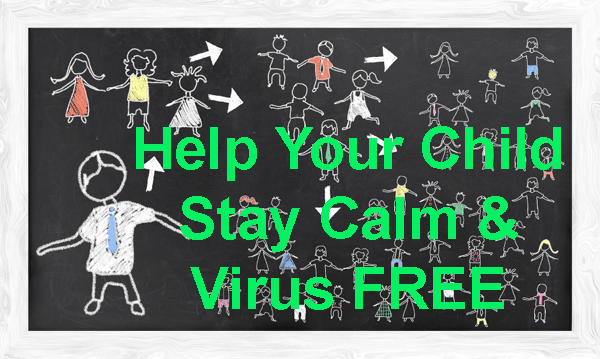When news of the recent outbreak scare of enterovirus 68 hit the news this past weekend, as a parent, I was obviously concerned. Ten states so far have contacted the CDC for assistance in investigating clusters of enterovirus -- Colorado, North Carolina, Georgia, Ohio, Iowa, Illinois, Missouri, Kansas, Oklahoma, and Kentucky. Living in Minnesota, having two neighboring states with outbreaks is a bit unnerving. According to the latest reports - I'm not the only one unnerved. British Columbia health officials are just as concerned about the virus hopping the border and spreading into the province.
Enteroviruses, which bring on symptoms much like a very intense cold, aren't in and of itself unusual. They're actually pretty common. The unusual situation happening right now is that there have been so many hospitalizations associated with this strain of the enterovirus.
As it stands, the virus is sending many children to local hospitals, where about 15% of the youngsters have been placed in intensive care with extreme breathing problems which required oxygen hookups.
SEE ALSO: 10 Totally Incurable Medical Maladies
This particular strain of enterovirus -- EV-D68 -- is uncommon, but not new. First identified in the 1960s, there had been fewer than 100 reported cases since that time, but that could partially be due to the fact that it’s been hard to identify. At this point in time, the virus also has no vaccine – making it particularly scary for those whose immune systems can’t handle the virus.

Social Media by TLFurrer/istockphoto
According to the CDC (Center for Disease Control), in most cases, children will likely have mild reactions, their bodies never really showing more than the stereotypical cold symptoms like fever, body and muscles aches, sneezing, and coughing – which is good news for most kids and their parents. I know I’m certainly one who is a bit relieved reading this news. Those particularly susceptible to the more volatile aspects of the virus are said to be children younger than five who have a limited immune system, and children suffering with asthma.
While this outbreak has the potential to be serious – and in fact, already is – it’s good to note that there are some very simple ways to stave off viruses in general – and EV-D68 is no exception.
Reminders and guidelines to staying healthy & virus free
To help reduce the risk of infection with EV-D68 (or any virus), healthcare professionals recommend the following:
• Wash your hands often with soap and water for 20 seconds, especially after changing diapers
• Help young children wash their hands in the same manner
• Avoid touching your eyes, nose, and mouth with unwashed hands
• Avoid kissing, hugging, and sharing cups or eating utensils with people and children who are sick
• Disinfect frequently touched surfaces, such as toys and doorknobs, especially if someone in your household is sick
• Stay home or keep young children home when feeling sick
• Obtain consultation from your health care provider if you or your children exhibit symptoms of EV-D68
For those of you within the areas affected by the virus – we wish safety and health to those you love. Stay safe and practice good hygiene for yourself and your kids. If you’ve got more information or a story to tell regarding this virus, leave us a comment below and engage with us.
###
Carissa Andrews is an passionate author and freelancer from Minnesotan with a focus in creative writing.